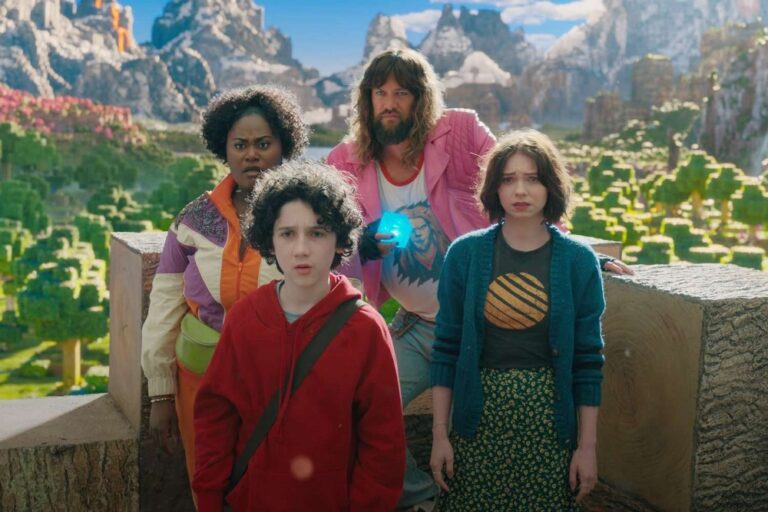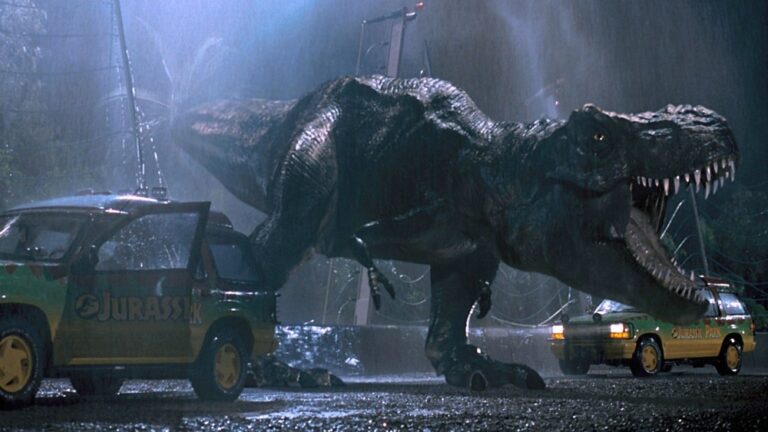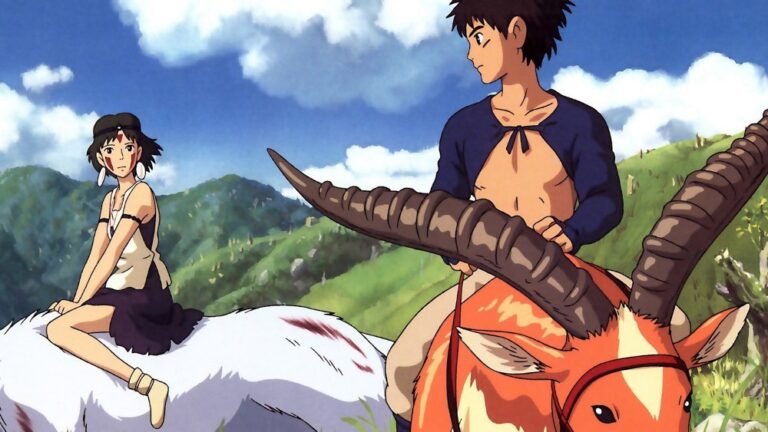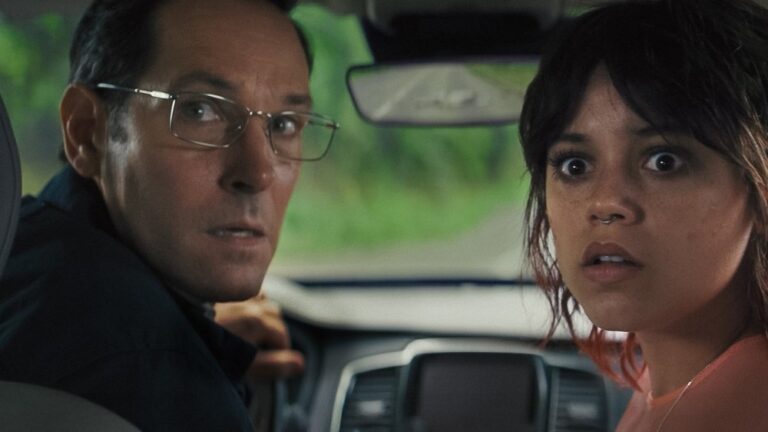Every couple of weeks, the OFCS polls its members with a question related to movies. It can be serious or amusing, but each member is given the opportunity to submit a short response to the question, which we will then post on Thursday mornings. Here is this week’s query.
Essay Question #5: Which director encapsulates the exciting world of cinema to you?
Aaron Pinkston @ Battleship Pretension
Responses
Marilyn Ferdinand @ Ferdy on Films
When I think about exciting directors, I think about men and women who take chances, veer into the unknown, and find ways to make their visions, no matter how wild or difficult, come true. For me, the director who defines exciting is Werner Herzog.
Herzog has toggled between feature films and documentaries over his 50+ years as a director. He managed to have a small ship dragged over land for a shot he had to have in FITZCARRALDO, cut another man’s footage into a film that is all his own in GRIZZLY MAN, and made one of the best uses of 3D ever to take people to see cave paintings inaccessible to all but a few researchers in CAVE OF FORGOTTEN DREAMS. He sees barriers and shatters them, and is confident that his interests will interest us all. He’s right.
John Gilpatrick @ JohnLikesMovies.com
When I think of the word “exciting” in this context, I think about filmmakers whose films I’d see and anticipating no matter what, as well as filmmakers whose films are hard to pin down because he or she is always doing something new. The person who best captures those two qualities for me is Paul Thomas Anderson.
There won’t be a film of his, ever, that I don’t anticipate months in advance. I can revisit the films he’s already made and find something new about each one every time. And he never makes the same film twice; it’s hard to imagine the same guy who made There Will Be Blood also made Inherent Vice. The only thing those two films have in common is that they’re the best to come out of their respective years.
Rob Gonsalves @ eFilmCritic
Kubrick. He understood every aspect, every element. Sound, editing, black and white, color, he mastered it all. There are/were directors worldwide with what I would call a PhD mastery of filmmaking — Kurosawa, Hitchcock, Tarkovsky. For me, Kubrick is the American doctor of fine cinema. For others he is a bore, but no true artist gets a homogeneous response.
Charlie Juhl @ Citizen Charlie
Though there are multiple worthy candidates, J.C. Chandor encapsulates the exciting world of contemporary cinema. He has written and directed three films each one superior to previous one. Margin Call (2011) was nearly indecipherable through the layers of financial jargon yet we witnessed a stellar debut because a subject as dry as spreadsheets and risk management felt like an edge-of-your-seat thriller. Writer/directors usually stick to what they know, familiar themes – not Chandor. All Is Lost (2013) teleported as far as you can imagine from a sterile, stuffy executive board room out into the middle of the Indian Ocean. Where Margin Call was all speeches and verbosity, All Is Lost is quiet with only the sound of the water and a slowly sinking boat. Then last year, in one of 2014’s Top 5 films, Chandor dropped A Most Violent Year, a film with no prerequisite on his resume. Its subject, a home heating oil distribution company, reads as dry on paper as Margin Call. Yet, recall how tense you were in your seat watching Oscar Isaac and Jessica Chastain stand up to each other. This procedural drama was more suspenseful than 2014’s scariest horror films.
I would know a Wes Anderson film without seeing his name on the credits. I would not know a J.C. Chandor film without the “Directed By”; he always brings something completely different and unexpected. Through the quick succession of three films, Chandor proves he is one to watch, a great director just about ready to claim a top spot.
Jeremy Kibler @ The Artful Critic
If Woody Allen still made films on the level of “Annie Hall” and “Manhattan,” I would say the Woodman, but as of late, I’m going to go with Sofia Coppola. Her artistic style is very much what I would like to see more of in contemporary cinema. Coppola’s melancholy mood and simplicity in her filmmaking is simply sublime every time, and in a way, all of her films are of a piece. While she often just sets her camera down and lets the action do all of the talking in long takes, it always feels like a motivated choice and never a pretentious or lazy approach. With that said, Coppola’s films aren’t conventionally exciting, but I would like to see how she would stage a car chase or a bombastic explosion if an action pic ever came her way.
Kristen Lopez @ Awards Circuit
I would probably say Billy Wilder. His films aren’t discussing grand philosophical ideas, taking you out into the furthest reaches of space, or really utilizing grand camera angles and the like, but he discusses people and reality with such a subtle type of whimsy. A movie like Some Like It Hot is completely ridiculous, yet the gangster storyline grounds it in reality. You’re so wrapped up in the adventure and the hijinks that you can ignore the utter ridiculousness of the plot.
Wesley Lovell @ Cinema Sight
There are so many directors who could fit this description, from classic inspirations like Billy Wilder to modern masters like Paul Thomas Anderson. Film is an art form as much as it is a medium for entertainment. As such, the director I think most exemplifies the world of film for me is Stanley Kubrick. His intricate attention to detail; his desire to keep studio control out of his productions; his appreciation for form, function and composition; and his many other qualities that have made him one of the most respected filmmakers in cinema history. Every film he made, even the ones I’m not that enamored with, are seminal works of the medium and can be looked at as a way of bridging art, conversation and entertainment in unique, inventive and provacative ways.
Dan Lybarger @ ArkansasOnline.com
Billy Wilder’s movies can juggle emotions so effortlessly that he practically invented genres with some of his movies. “The Apartment” is loaded with witting dialogue and lacerating observations on the dark side of capitalism. Similarly, “Some Like It Hot” examined gender roles with a sophistication that was 50 years ahead of its time. He came up with one of the first great noirs with “Double Indemnity” and changed how we look at addiction with “The Lost Weekend.”
It’s intimidating knowing he was working in a fourth language. He arrived in the States from Berlin, speaking nothing in English but jazz lyrics and curse words. At his best, Wilder could entertain so well that it was easy to forget how much content his films actually had. As he put it, “If you have something important to say, wrap it in chocolate.”
Jana Monji @ Examiner.com; RogerEbert.com
The directors who encapsulate the exciting world of cinema to me are Hayao Miyazaki and Alfred Hitchcock. Miyazaki was able to bring stories that featured women as brave and independent without portraying them as sex objects. He took Japanese cultural influences and created tales or enhanced the tales of others. In doing so, he pushed the art of animation forward thematically and artistically.
While Miyazaki won a 2003 Oscar for Best Animated Feature (“Sen to Chihiro no Kamikakushi” or “Spirited Away”) but Hitchcock never won an Oscar although he was nominated five times (“Psycho,” “Rear Window,” Spellbound,” “Lifeboat” and “Rebecca”). He was given an Irving G. Thalberg Memorial Award in 1968. Hitchcock’s editing (e.g. use of asynchronous sound in “The 39 Steps”) and his use of suggestion rather than an explanation via dialogue (Cary Grant’s hands in “To Catch a Thief”) or a show of violence (e.g. the show scene in “Psycho”) worked on one’s imagination.
In both cases, these directors helped bring more attention to under appreciated genres of cinema.
Pat Mullen @ Cinemablographer
Sarah Polley has only a trio of credits to her name as a feature film director, but Away from Her, Take This Waltz, and Stories We Tell make her one of the most significant filmmakers working today. It helps that my three greatest interests in film—adaptation, Canadian film, and documentary—are all embodied in Polley’s three films, but Polley encapsulates the cinema for me because each of her films feels so profoundly personal. Polley shows that a distinctly specific film has universal power and she invests a remarkable attention to detail while creating the world of her characters, even if that world is her own family unit. Her attention to form and meaning, moreover, is distinct in each film from the uncontrived, down-to-earth style of Away from Her (a perfect complement to the prose of Alice Munro), to the warm, fun-in-the-sun bittersweetness of Take This Waltz to the shapesfitfting play of fiction and non-fiction in Stories We Tell, each of Polley’s films feels like an exploration of herself as an artist as much as they do an exploration of the awkward messiness of love, which seems to be a running theme throughout her work. I think Polley’s work is what film is really all about: taking a piece of oneself and putting it on display for others to interpret, inhabit, and interrogate.
João Pinto @ Portal Cinema
Without a doubt, Alfred Hitchcock. His love for suspense is legendary and that passion is always visible in his legendary films. His magic and passion for this art translates into the best qualities cinema has to offer to the world and, off course, all of that passion gave us some of the best and most creative films of our history. His films are extravagant and amazing and every time I see “The Birds” or “Psycho” I feel a type of exciting and passion that very few directors can deliver.
Kevin Ranson @ MovieCrypt.com
Timur Bekmambetov – His work on films like Night Watch, Wanted, and Abraham Lincoln: Vampire Hunter shows a uniquely cinematic vision. Working within a primarily visual medium, a new perspective doesn’t come around very often, but here’s a director that fearlessly tries to show us new things in new ways. He makes the mundane exciting and the exciting amazing, just by changing up the perspective we’re used to. It doesn’t always work perfectly in every scene or film, but the work is unmistakably his.
Jamie S. Rich @ DVDTalk.com
Billy Wilder was the first classic director I knew by name, and the first to distract a child in the 1980s from Steven Spielberg and John Hughes and show me the value of those weird artifacts they aired on afternoon television. As I dug deeper, I was fascinated by the breadth of his efforts. While one could argue his primary talent was in comedy, the truth was, he was more a student of human behavior, and he adjusted his filmmaking to find the most direct way of delivering his story.
Then again, it wasn’t so strange for an Old Hollywood director to have movies as diverse as the alcoholic drama The Lost Weekend and the exaggerated farce Irma La Douce on his resume. Both are marked by clear and elegant storytelling, and characters that pushed through their struggles with a dogged perseverance and (sometimes) repressed rage. William Holden gritting his teeth through the worst of times in a POW camp in Stalag 17, Jack Lemmon biting his lip while his heart breaks in The Apartment, Fred MacMurray ignoring the little man in his guy (and standing next to him) in Double Indemnity, Audrey Hepburn finding the courage to chase the right man in Sabrina–individual people in individual films, all totally different, all sublimely entertaining.
Robert Roten @ Laramie Movie Scope
Darren Aronofsky has what I look for in a director: the willingness to take on really risky and ambitious projects like “The Fountain”, “Pi” and “Requiem for a Dream.”
I don’t think his last two films, “Noah” and “Black Swan” were up to the level of his earlier films, but here’s hoping he returns to the form he showed in those daring, visionary films he used to do.



